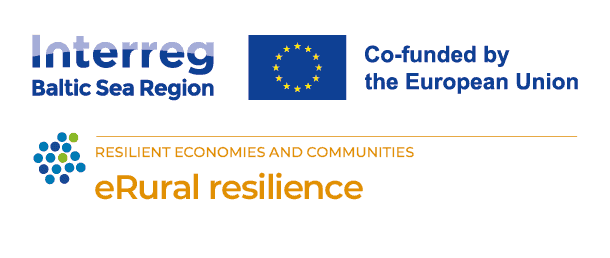
Kompostella Case Study: Testing a Methodology for e-Bio-Business Launching
11 November 2025
 Article written by: Viktorija Neshkovska Draganov
Article written by: Viktorija Neshkovska Draganov
Nestled in the rolling hills of Poland’s Świętokrzyskie region, the small family business Kompostella is proving that sustainable living can thrive without large-scale expansion. A proud participant in the eRural resilience project and an adopter of the Methodology for Supporting e-Bio-Business Launching, Kompostella demonstrates how tradition and innovation can work hand-in-hand.
Kompostella produces homemade vinegars and fermented preserves from fruits and vegetables cultivated naturally in their own garden. Every jar reflects the principles of permaculture, ensuring that the soil remains healthy and biodiversity flourishes.
By taking part in the Methodology, Kompostella owners now have clear picture what are their capacitates and where they see their rural business in future. While many businesses aim to scale up, Kompostella’s owners are aware of their human resources and intend to keep the company production in accordance to their capacitates. “We want to preserve the spirit of a family farm and focus on quality, not quantity,” says Małgorzata Witczak, adding that the goal is to deepen their commitment to organic production rather than expand commercially.
As part of their growth in knowledge and community impact, Kompostella is broadening its services with hands-on permaculture culinary workshops. This way the rural businesses can reduce dependence on one sector, more specific on the production process. These workshops invites locals and visitors alike to learn techniques of natural gardening and culinary, helping to spread regenerative practices throughout the region.
According to Viktorija Neshkovska Draganov, manager of the eRural Resilience project in Creativity Works Europe- one of the project partners, “Kompostella embodies the essence of rural resilience—protecting the environment, sharing knowledge, and creating economic opportunities while staying true to local traditions. By testing this methodology, local authorities and business support organizations like Chambers of Commerce, assess the capacity of rural businesses and provide custom made support by identify their gaps and cover the gaps with capacity building and external expertise.”





